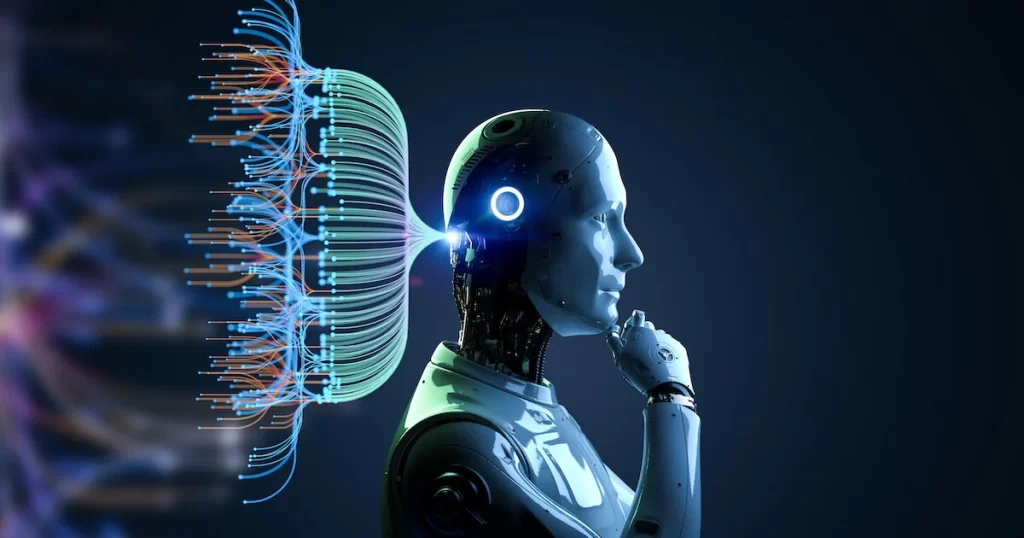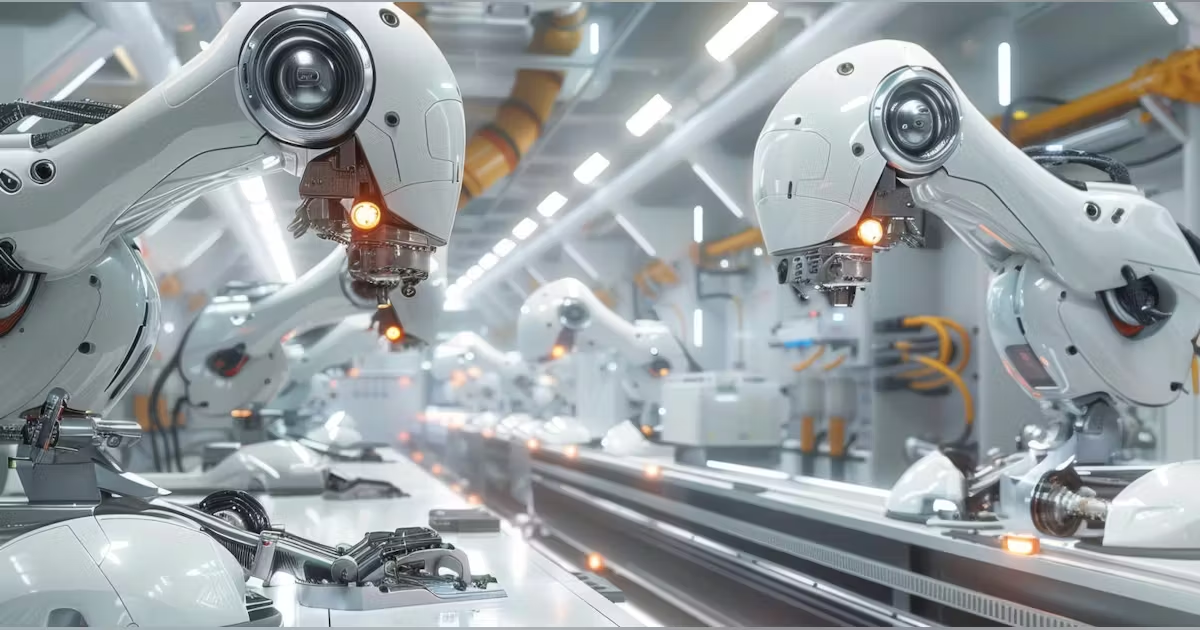The Growing Role of AI in Scientific Discovery

Scientific discovery has long been a process driven by human intellect, observation, and experimentation. While technology has played a significant role in accelerating research, artificial intelligence (AI) is now pushing the boundaries of what is possible. AI is no longer just a tool for automation; it is actively reshaping the scientific method, allowing researchers to analyze vast amounts of data, generate new hypotheses, and even assist in conducting experiments.
The impact of AI is being felt across multiple disciplines, from drug discovery and climate science to physics and materials engineering. With the ability to identify patterns, simulate complex systems, and generate novel solutions, AI is becoming an indispensable partner in scientific research. As researchers integrate AI-driven models into their work, the pace of discovery is accelerating, leading to breakthroughs that would have been unimaginable just a decade ago.
This article explores how AI is transforming scientific research, the breakthroughs that are emerging, and the challenges that remain in integrating AI into the scientific process.
AI and the Acceleration of Scientific Research
Traditional scientific methods rely on hypothesis formulation, experimentation, and analysis, often requiring years or even decades to yield significant results. AI is fundamentally altering this workflow by enabling:
- Automated hypothesis generation – AI models can scan vast amounts of literature and data to identify new scientific questions that humans might overlook.
- High-speed simulations – Complex systems that once required costly and time-intensive physical experiments can now be simulated with AI-driven models.
- Data-driven discovery – AI can process datasets thousands of times larger and more complex than what human researchers can manually analyze.
This shift is making scientific research more efficient, precise, and scalable, allowing breakthroughs to happen faster than ever before.
Breakthroughs in AI-Powered Scientific Discovery
The integration of AI into scientific research is already producing groundbreaking results. Here are some of the most promising developments:
1. AI in Drug Discovery and Medical Research
- AI is significantly reducing the time needed to identify potential drug candidates, which traditionally takes years of laboratory testing.
- Machine learning models are predicting protein structures with high accuracy, leading to advancements in understanding diseases at a molecular level.
- AI-driven drug discovery platforms, such as DeepMind’s AlphaFold, have revolutionized the way scientists determine protein folding, a key aspect of understanding many biological processes and diseases.
- Researchers are using AI to analyze genomic data, identifying genetic markers linked to diseases and personalizing medical treatments based on individual genetic profiles.
2. AI in Climate Science and Environmental Research
- AI is playing a key role in climate modeling, improving predictions of extreme weather events and helping policymakers develop more effective climate adaptation strategies.
- Machine learning algorithms are being used to analyze satellite imagery, tracking deforestation, carbon emissions, and biodiversity loss in real time.
- AI-powered simulations are helping researchers design more energy-efficient materials, optimize renewable energy grids, and improve battery storage technologies.
- AI is being applied in oceanography, where it helps researchers track ocean currents, predict temperature changes, and monitor marine ecosystems with greater accuracy.
3. AI in Physics and Materials Science
- Scientists are leveraging AI to discover new materials with specific properties, reducing the trial-and-error approach that has traditionally defined material science.
- In particle physics, AI is helping researchers analyze complex experimental data from particle accelerators, allowing for faster identification of new subatomic particles.
- AI-driven quantum computing research is enabling scientists to simulate quantum interactions more efficiently, paving the way for new advances in quantum mechanics.
These breakthroughs demonstrate that AI is not just enhancing existing research methods but is also enabling entirely new ways of conducting science.
Challenges in AI-Driven Scientific Research
While AI is proving to be a powerful tool for scientific discovery, its integration into research also presents significant challenges:
1. Data Quality and Bias
- AI models rely heavily on large datasets, and if the data is incomplete, biased, or inaccurate, it can lead to misleading results.
- Ensuring that AI models are trained on diverse, high-quality datasets is critical to maintaining scientific integrity.
2. Interpretability and Explainability
- Many AI models, especially deep learning systems, function as black boxes, meaning their decision-making processes are not always transparent.
- Scientists need AI models that can explain their reasoning, allowing researchers to validate and trust AI-generated hypotheses.
3. Ethical and Regulatory Concerns
- AI-driven research in areas like genetics, medicine, and climate policy must be carefully regulated to prevent misuse.
- Researchers must address ethical concerns, such as AI-generated discoveries being used for harmful purposes or AI models reinforcing existing scientific biases.
4. Computational Costs and Accessibility
- Training advanced AI models requires immense computational resources, making it difficult for smaller research institutions to leverage these technologies.
- Efforts to make AI tools more accessible and cost-effective are essential to democratizing AI-driven scientific discovery.
Despite these challenges, ongoing advancements in AI continue to refine its role in scientific research, making it an increasingly valuable tool for innovation.
The Future of AI in Scientific Discovery
As AI continues to evolve, its role in scientific discovery is expected to grow even further. Here are some key areas where AI is likely to have a major impact in the near future:
- AI-powered autonomous laboratories – Fully automated research labs driven by AI will be able to conduct, analyze, and refine experiments without human intervention, significantly accelerating research.
- Human-AI collaboration in research – AI will increasingly act as a research assistant, working alongside human scientists to generate ideas, conduct experiments, and interpret findings.
- Breakthroughs in fundamental science – AI models will help scientists formulate new theories in areas such as astrophysics, chemistry, and quantum mechanics, pushing the boundaries of human knowledge.
- AI-driven personalized medicine – Advances in AI will enable more tailored medical treatments, ensuring that therapies are optimized for individual patients based on genetic and environmental factors.
AI is not just another tool in the research process; it is becoming a core component of how scientific discovery happens, shaping the future of multiple disciplines.
Final Thoughts: A New Era of AI-Powered Discovery
The integration of AI into scientific research is revolutionizing how we understand the world. From solving complex problems in medicine to modeling climate change and discovering new materials, AI is accelerating discoveries that once took years to achieve.
However, as AI becomes more embedded in the scientific process, researchers must also navigate challenges related to data quality, ethics, and explainability. The key to success lies in combining AI’s computational power with human intuition, creativity, and ethical judgment.
Looking ahead, AI is poised to reshape the landscape of scientific exploration, opening doors to discoveries that would have been impossible with traditional research methods alone. Scientists and AI systems working together may define the next great era of human knowledge and innovation.




